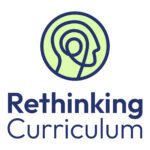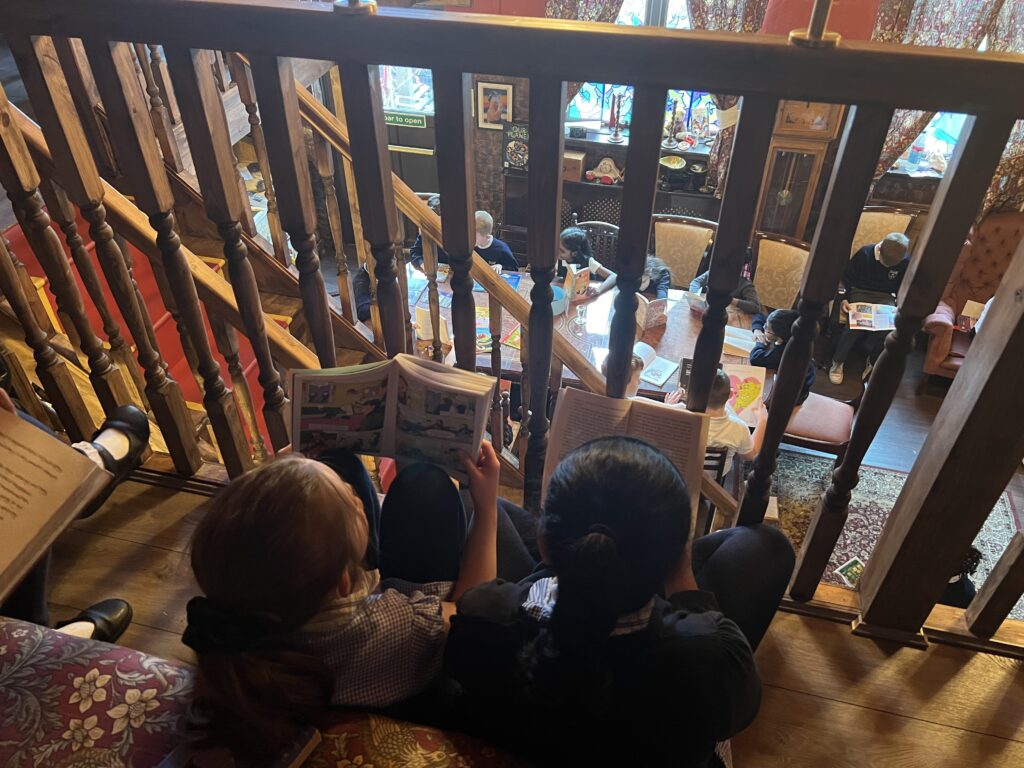
This article has been published as part of the Rethinking Curriculum project, kindly funded by The Helen Hamlyn Trust.
James Seargant, Headteacher at Wyborne Primary School in South East London
Our commitment to experiential learning lies at the core of our curriculum. In simple terms, experiential learning can be defined as ‘challenge and experience followed by reflection, leading to learning and growth’ (AEE, 2024). At Wyborne, a diverse community primary school in South East London, we know that hands-on experiences and reflection opportunities for our pupils ensure that they are better able to connect theories and knowledge learned in the classroom to real-world situations.
Over thirty languages are spoken at our school and we have a large cohort of pupils with special educational needs and disabilities (SEND) and education, health and care plans (EHCPs). Experiential learning enables our curriculum to be broad, relevant and innovative and supports teaching and learning as well as adaptation for our diverse cohort. An experiential curriculum can particularly benefit students with SEND (Ranken et al., 2023).
At Wyborne, project-centred learning supports experiential learning. It’s not just an instructional strategy, but a philosophy that underpins our curriculum intent. Reflecting on my journey from a passionate teacher to the headteacher, project-centred learning has guided our curriculum development.
Our curriculum is an ongoing experiment (we are still learning) and a journey of trial and refinement. Guy Claxton’s The Learning Power Approach (2018) steers our curriculum development plan, guiding us to create a learning environment where curiosity flourishes, critical thinking is nurtured, and a genuine love for learning is instilled in each child and staff member.
Immersive learning
Beyond traditional teaching, we want Wyborne Primary School to stand as a beacon for immersive learning experiences, promoting awe and wonder. Our collaboration with the immersive theatre charity Punchdrunk Enrichment has been a catalyst for transformative education. The ‘museum of everything’, an enchanting space within our school, stands as a testament to the magic of immersive learning and is a lasting legacy to immersive, creative approaches. Imagine a room that surpasses the boundaries of conventional learning environments. It’s not merely a space – it’s an immersive journey where children touch, feel and actively engage with their learning. This immersive experience, with elements of movement, distinct scents and varied sounds, breathes life into our projects and hooks curiosity. Our museum of everything encapsulates the impact of collaborative efforts with PunchDrunk Enrichment and their legacy in our school. (The museum can be viewed in this video).
Our museum of everything began with a spare classroom where we wanted to create an immersive space. Over time, the staff came together to build and create the museum. It houses our non-fiction books, and the artefacts and displays are directly linked to our humanities topics. Before the museum, artefacts such as our replica Roman collection would be stored in our resource room and only displayed for the duration of the topic. Now, the Roman artefacts are proudly displayed all year, so even if you’re not studying the Romans, you are exposed to the artefacts, enhancing curiosity.
The museum has transformed our school. The space enables our pupils to learn in a different place to their classroom. Classes are timetabled to access the museum every week and teachers are free to book the space to enhance other lessons including shared reading, singing, research sessions and project launches.
The museum inspires awe and wonder, which is a significant theme of our Wyborne Teaching and Learning Toolkit. By observing the children engaging with the museum and seeing first-hand how it enhances teaching and learning, including by developing writing, we are confident that it is having an outstanding impact on pupil progress and attainment, especially for those pupils who face additional barriers to learning and behavioural or emotional needs.
Our community adores the museum too. Local authors, the local historical society and other schools are regular visitors. So many artefacts have been donated by parents, carers and grandparents as well as other members of the community, including gas masks from the Second World War and fossils from the Jurassic Coast!
Developing staff confidence
When I became headteacher nine years ago, I made a conscious decision to champion the very projects and topics that had fuelled my passion as a teacher. This decision was not only about embracing cross-curricular links, topics and project-centred learning but also developing staff confidence.
I led several INSET sessions that enabled staff to reflect on their own school experiences, including what they remembered fondly and what aspects of school they least liked. This important work prompted quality discussions and debate around the importance of experiential learning and the potentially negative impact of many ‘traditional’ approaches that are no longer fit for purpose, including over-preparing pupils for standardised tests.
Empowering our staff meant providing them with the autonomy to take risks, trusting in their creativity, and offering a platform for experimentation. We foster a culture where ideas aren’t just welcomed but are actively encouraged. Autonomy in planning and the freedom to explore diverse pedagogical directions have been key in developing a staff team that feels empowered and deeply connected to our curriculum.
Harmonious community
Our school projects are not isolated; they extend into the broader community. Parental and carer involvement is an essential part of this shared adventure in learning. At the core of our curriculum design is a commitment to relevance and accessibility, ensuring that every child, regardless of individual characteristics, can gain valuable insights from our educational approach.
Parents and carers are invited into school regularly to see teaching and learning in action through exhibitions, class assemblies and trips that enhance the projects. Parental and carer engagement is always high at the inception of a project, and the excitement among parents and carers during project reveals is a testament to the harmonious community we’ve built together. We also organise successful grandparents days and an annual careers week where family and community members speak about their occupations and their own educational journeys.
Wyborne Primary School is a vibrant community where staff, parents, carers and children collectively play key roles in the learning journey.
Future curriculum development
As we look to the future, the evolution of our curriculum remains a central focus. The crafting of our three-year strategic vision involves actively continuing to explore innovative approaches. We are constantly learning from others and seeing what is happening beyond our school. Wyborne doesn’t settle for the status quo – we want to be explorers, pushing boundaries and redefining often-out-of-date educational practice.
Visits to other educational settings, engaging in conversation and re-evaluating the ‘what’, ‘how’, and ‘why’ within our curriculum are part of this natural progression. Our commitment to continuous improvement propels us forward, and we’re excited to share our experiences as far as possible.
Tips for young leaders
Drawing from my experiences, I offer a piece of advice to fellow leaders: be courageous. Taking risks isn’t merely a suggestion, it’s a necessity. Encouraging your team to think outside the box and creating an environment where trust and autonomy flourish is key. Trust your team and allow experimentation. Identify the strengths and creativity within your team and encourage collaborative working. It’s within this spirit of adventure that true innovation in education is born.
Conclusion
Wyborne Primary School stands not just as a school but as a vibrant, harmonious community of engaged learners. We strongly believe that pupil success shouldn’t be merely measured in data outcomes but also seen in the love of learning witnessed every day. As we continue to evolve, my hope is that our journey inspires educators and policymakers to embark on their own path of innovation, creating and promoting dynamic and exciting learning environments.
References
Association for Experiential Education (AEE) (2024) What is Experiential Education? Available at: https://www.aee.org/what-is-experiential-education (accessed 16 May 2024)
Claxton G (2018) The Learning Power Approach: Teaching Learners to Teach Themselves. Carmarthen: Crown House Publishing
Ranken E, Manyukhina Y, Wyse D et al. (2023) Experiential Learning for Children Aged 4-14: A Rapid Evidence Assessment. Helen Hamlyn Centre for Pedagogy (0 – 11 years), UCL Institute of Education: London, UK. Available at: https://discovery.ucl.ac.uk/id/eprint/10173743/ (accessed 16 May 2024).











